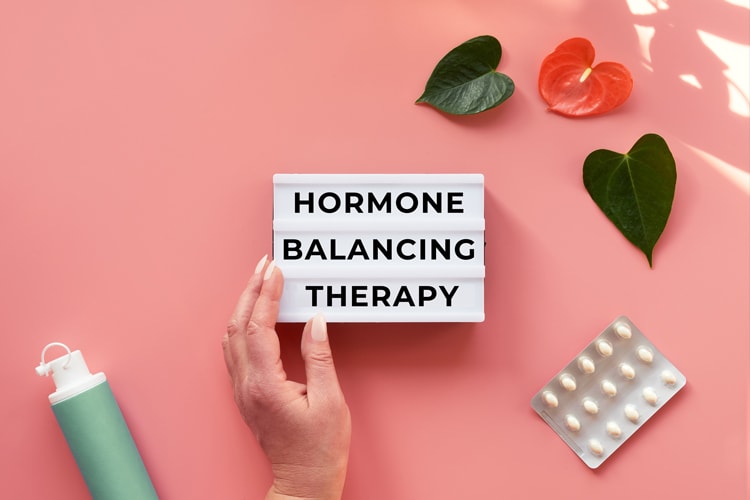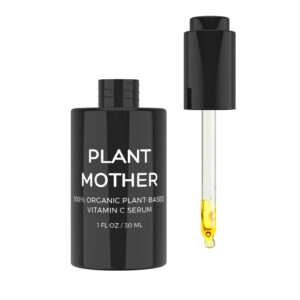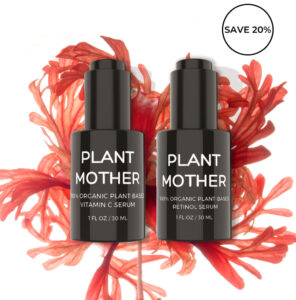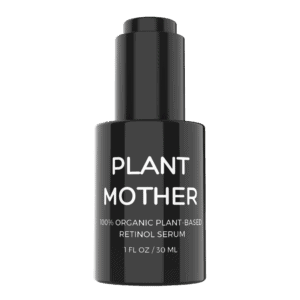How To Thrive Through Menopause: 5 Game-Changing Secrets for Menopausal Women

Menopause is a natural transition in a woman’s life that brings about hormonal changes and often presents with a range of symptoms. Hormonal imbalances during this stage can lead to uncomfortable and disruptive symptoms.
In this article, we will explore what happens with hormones during menopause, delve into the symptoms caused by hormonal imbalances, and provide five game-changing solutions to alleviate these symptoms.
From embracing organic food and skincare to incorporating natural hormone replacement options and adopting healthy lifestyle practices, we will explore various strategies to support menopausal women in their pursuit of well-being.
Additionally, we will share bonus tips on how to promote overall wellness and the benefits of probiotics in managing menopausal symptoms. Join us as we embark on a journey to empower women during this transformative phase of life.
We’ll cover the following:
- What Happens With Your Hormones During Menopause?
- Menopausal Symptoms Caused By Hormonal Imbalance
- How Can You Alleviate These Symptoms?
- 5 Game Changing Solutions For Menopausal Women
- Eat Organic Food
- Switch To Organic Skincare and Cosmetics
- Use Plants That Act As Natural HRT
- Reduce sugar and carbs and Start Intermittent fasting
- Cortisol and Adrenal Support
Bonus tip #1 – Wellness (Gym, Walking, Sun Exposure)
Bonus Tip #2 – Probiotics
What Happens With Your Hormones During Menopause?
During menopause, both estrogen and progesterone production significantly decrease. Perimenopause refers to the transitional phase leading up to menopause when the ovaries gradually produce less estrogen, and it typically begins several years before menopause. Menopause is defined as the permanent cessation of menstruation for 12 consecutive months.
At the start of perimenopause, estrogen production may actually increase, leading to irregular menstrual cycles. As perimenopause progresses, the ovaries become less responsive to hormonal signals from the brain, resulting in lower estrogen production. This decline in estrogen levels can cause various symptoms, including hot flashes, night sweats, vaginal dryness, mood swings, and changes in the menstrual cycle.
Progesterone levels also decline during perimenopause, although not as dramatically as estrogen. The decrease in progesterone occurs because ovulation becomes irregular. Reduced progesterone levels can contribute to changes in the menstrual cycle, such as shorter or longer cycles and irregular periods.
Menopausal Symptoms Caused By Hormonal Imbalance
Before ovulation our ovaries produce progesteron (“feel good hormone”), and after ovulation they produce estrogen. During perimenopause and menopause both progesterone and estrogen drop, but progesterone drops more causing estrogen dominance in most women.
This hormonal imbalance can lead to various symptoms, including:
Irregular or heavy periods: Estrogen dominance can cause changes in the menstrual cycle, such as irregular periods, heavier or prolonged bleeding, or spotting between periods.
Mood swings: Increased estrogen levels and disrupted hormonal balance may contribute to mood swings, irritability, anxiety, and even depression.
Breast tenderness: Estrogen dominance can cause breast tenderness, swelling, or fibrocystic changes in the breasts.
Weight gain: Some women with estrogen dominance may experience weight gain, particularly in the hips, thighs, and abdominal area.
Fatigue: Feeling tired or fatigued is a common symptom associated with hormonal imbalances, including estrogen dominance.
Insomnia: Difficulty falling asleep or staying asleep can be a symptom of estrogen dominance.
Water retention and bloating: Elevated estrogen levels can lead to water retention, bloating, and a sense of swelling or puffiness in the body.
Headaches: Some women with estrogen dominance may experience more frequent or severe headaches, including migraines.
Decreased sex drive: Imbalances in estrogen and other hormones can contribute to a decreased libido or changes in sexual desire.
Brain fog and memory issues: Estrogen dominance might affect cognitive function, leading to difficulties with concentration, memory, and mental clarity.
For a more detailed overview of all symptoms, take a look at the 34 symptoms of menopause.
How Can You Alleviate These Menopausal Symptoms?
It’s important to note that the hormonal changes experienced during menopause and perimenopause can vary among women. Some may have more pronounced symptoms due to greater fluctuations in hormone levels, while others may have a relatively smoother transition.
If you have concerns or are experiencing troublesome symptoms during this period, it’s recommended to consult with a healthcare professional for guidance and potential treatment options.
Your goal should be to naturally stimulate your glands to produce a healthy combination of estrogen and progesterone. The imbalance can also strain your adrenals because in menopause ovaries are less active and then adrenals take up the role as a backup for ovaries. Therefore natural and plant-based HRT is highly recommended.
HRT used to be bad in the past because it was just replacing estrogen and creating cancerous cells because too much estrogen can lead to cancer. Nowadays HRT has a combination of estrogen and progesterone. But it’s a synthetic replacement that will make your glands (that should naturally produce hormones) less active. Therefore you should consult with the doctor and ask for plant-based HRT options (we’ll talk about these options later in this blog post).
5 Game Changing Solutions For Menopausal Symptoms
1. Eat Organic Food:
It all starts with a clean and healthy liver – you should take the food that is liver detoxifier. That’s organic food because toxic chemicals and herbicides are endocrine disruptors and destroy the healthy balance in hormones. Avoid GMO food such as soy, corn, etc. because they contain glyphosate and roundup. Food without added hormones such as milk, cheese, meat, eggs – your can eat it as long as it’s organic and not made with hormones.
- Cruciferous foods – kale, cabbage, broccoli, brussel sprouts, raw sprouts, mustard, arugula, etc. Make a kale drink in the morning. These foods are great detoxifiers of the liver. They contain phytonutrients that support the liver function. Don’t overcook them though and always use organic ingredients. Turmeric and beets are also great support for liver. Avocado and raw broccoli sprouts as well.
- Iodine from sea kelp: It’s important to get the sea kelp from a pure part of the ocean. Ideally certified organic. It protects you from excess estrogen, supports your thyroid, helps with cognitive function, and much more.
- Nettle root – it is good for many reasons. Nettle root may have effects on hormones, particularly by modulating sex hormone-binding globulin (SHBG). SHBG is a protein that binds to sex hormones like testosterone and estrogen, regulating their availability and activity in the body. By binding to SHBG, nettle root may help increase the levels of free (unbound) testosterone and estrogen, potentially influencing hormonal balance. Nettle root is sometimes used in hair and skincare products due to its benefits for hair growth and skin health.

2. Switch To Organic Skincare and Cosmetics
Organic and plant-based skincare products can be beneficial for women with hormonal imbalances for several reasons:
Avoidance of endocrine disruptors: Endocrine disruptors are chemicals found in many conventional skincare products that can interfere with the normal functioning of hormones in the body. These disruptors may mimic or block the actions of hormones like estrogen, leading to further hormonal imbalances. By choosing organic and plant-based skincare, you can minimize exposure to these potential endocrine disruptors and reduce the risk of exacerbating hormonal issues.
Reduction of toxic load: Conventional skincare products often contain synthetic chemicals, artificial fragrances, preservatives, and other potentially harmful ingredients. These substances can add to the overall toxic load on the body and may impact hormonal balance. Opting for organic and plant-based skincare helps minimize exposure to these toxins and promotes a more natural approach to skincare.
Gentle and soothing ingredients: Plant-based skincare products often utilize natural ingredients that are gentle and soothing to the skin. This can be particularly important for women with hormonal imbalances, as their skin may be more sensitive or reactive. Organic and plant-based ingredients, such as botanical oils, can help nourish and support the skin without causing irritation or further disrupting hormonal equilibrium.
Nutrient-rich formulations: Many clean skincare products are formulated with nutrient-rich ingredients that offer additional benefits for overall skin health. These formulations may contain antioxidants, vitamins, minerals, and essential fatty acids that can support the skin’s natural barrier function, promote hydration, and provide nourishment. Healthy and well-nourished skin can contribute to overall well-being, including hormonal balance during and post menopause. For additional details, check skincare tips for women over 50.
Environmental and ethical considerations: Choosing organic and plant-based skincare aligns with an environmentally conscious and sustainable approach. These products often have a smaller environmental footprint, as they are made with ingredients derived from renewable resources and are produced using more eco-friendly practices. Additionally, many organic skincare brands prioritize ethical sourcing, fair trade, and cruelty-free practices.
3. Use Plants That Act As Natural HRT
Using plants that act as natural hormone replacement therapy (HRT) refers to the utilization of specific herbs and botanicals that may help balance hormone levels and alleviate menopause symptoms. Two commonly mentioned plants for this purpose are chaste tree (vitex), black cohosh, and dong quai.
Chaste Tree (Vitex): Chaste tree, also known as Vitex agnus-castus, is an herb commonly used for hormonal imbalances in women. It is believed to act on the pituitary gland, promoting the production of progesterone and helping to balance out estrogen and progesterone levels. It may be beneficial for regulating menstrual cycles, reducing breast tenderness, and alleviating mood swings. However, it’s important to note that the effects of chaste tree may take time to manifest, often requiring around three months of consistent use.
Black Cohosh: Black cohosh (Actaea racemosa) is another herb frequently used to manage menopausal symptoms. It is thought to have estrogen-like effects in the body, helping to alleviate hot flashes, night sweats, mood swings, and sleep disturbances. Black cohosh may work by interacting with serotonin receptors and balancing hormone levels, although the exact mechanism is not fully understood.
Dong Quai: Dong quai (Angelica sinensis) is a traditional Chinese herb often used for women’s health. It is considered a balancing herb that can help regulate hormone levels. Dong quai is believed to have estrogenic effects, which may help alleviate menopause symptoms such as hot flashes, vaginal dryness, and mood swings. Additionally, dong quai is known to energize the body and has been used to support overall vitality and increase libido. It is also considered a blood builder in traditional Chinese medicine.

Important HRT Considerations
It’s worth noting that while these herbs have been used for centuries and are commonly recommended for menopausal symptoms, scientific evidence supporting their efficacy is still limited and conflicting. The effects can vary from person to person, and individual responses may differ. Therefore, it’s advisable to consult with a healthcare professional or an herbalist before incorporating these herbs into your regimen, especially if you have any underlying health conditions or are taking other medications.
Additionally, it’s important to approach natural HRT with caution and monitor your symptoms and hormone levels regularly. It’s always recommended to work with a healthcare professional who can guide you in making informed decisions and provide personalized recommendations based on your specific needs and health status.
If you tried everything above and nothing is working, then synthetic HRT can be a solution for you – such as HRT cream (but its very powerful so take it as a last resort).
HRT creams can provide relief from menopausal symptoms and improve overall well-being for some individuals. Benefits may include alleviation of hot flashes, improvement in sleep quality, reduced vaginal dryness, and improved bone health. However, it’s important to note that HRT also carries potential risks and side effects. These can vary depending on factors such as the type of hormones used, dosage, duration of use, and individual health profile.
Potential risks may include an increased risk of certain cancers, blood clots, and cardiovascular disease. It’s crucial to consult with a healthcare professional who can evaluate your specific health status and guide you on the benefits and risks of HRT.
Each person’s hormone requirements are unique, and what works for one individual may not be suitable for another. Therefore, it’s crucial to have a thorough evaluation from a healthcare professional to ensure safe and effective use of hormone therapies.
4. Reduce sugar and carbs and Start Intermittent fasting
Reducing sugar and carbohydrates can be beneficial during menopause for several reasons:
Managing weight: Hormonal changes during menopause can lead to weight gain and a shift in body composition, with a tendency to accumulate more fat around the abdomen. High sugar and refined carbohydrate intake can contribute to weight gain and make it more challenging to maintain a healthy weight. By reducing sugar and carbs, particularly refined and processed ones, you can support weight management and reduce the risk of associated health issues such as cardiovascular disease and insulin resistance.
Stabilizing blood sugar levels: Menopause can bring about changes in insulin sensitivity, potentially leading to fluctuations in blood sugar levels. Consuming excessive amounts of sugar and refined carbohydrates can cause rapid spikes and crashes in blood sugar, resulting in energy fluctuations, mood swings, and increased food cravings. Choosing low-glycemic carbohydrates and reducing added sugars can help stabilize blood sugar levels, provide sustained energy, and promote more stable moods.
Supporting hormonal balance: High sugar intake can contribute to imbalances in hormones such as insulin and cortisol, which may further disrupt the delicate hormonal balance during menopause. Reducing sugar and carb consumption can help maintain more stable hormone levels, minimizing potential adverse effects on overall hormonal health.
Here are a few examples of how to reduce sugar and carbohydrates during menopause:
Choose whole, unprocessed foods: Focus on consuming a variety of whole foods such as fruits, vegetables, whole grains, lean proteins, and healthy fats. These foods provide essential nutrients, fiber, and slow-releasing carbohydrates, which can help regulate blood sugar levels.
Limit added sugars: Minimize or avoid foods and beverages with added sugars, such as sugary drinks, desserts, candies, and processed snacks. Check food labels for hidden sources of sugar and opt for natural sweeteners like stevia or small amounts of honey or maple syrup when needed.
Opt for low-glycemic carbohydrates: Instead of refined carbohydrates like white bread, white rice, and sugary cereals, choose complex carbohydrates with a lower glycemic index. Examples include whole grains (e.g., quinoa, brown rice, oats), legumes, and non-starchy vegetables. Another example is a smoothie made with kale + sea kelp + plant-based protein.
Be mindful of portion sizes: Even when consuming healthier carbohydrates like whole grains and fruits, it’s important to be mindful of portion sizes to manage overall carbohydrate intake and maintain stable blood sugar levels.
Prioritize protein and healthy fats: Including sources of lean protein (e.g., poultry, fish, tofu, legumes) and healthy fats (e.g., avocados, nuts, seeds, olive oil) in meals and snacks can help promote satiety, stabilize blood sugar, and support hormonal balance.
5. Cortisol and adrenal health support (as a backup for reduced function of ovaries)
Adaptogenic herbs: Certain herbs, known as adaptogens, have been traditionally used to support adrenal health and improve the body’s ability to cope with stress. Examples include ashwagandha, rhodiola rosea, and holy basil. Consult with a healthcare professional or a qualified herbalist for guidance on the appropriate use of adaptogenic herbs.

Bonus Tip #1: Wellness
Regular exercise: Engage in regular physical activity, such as moderate-intensity exercise, to support overall well-being and help manage stress. However, avoid excessive or intense exercise, as it may further burden the adrenals. Gym, walking, sun exposure, and yoga are all great wellness activities you should start practicing.
Bonus Tip #2: Probiotics
Probiotics can be beneficial for menopausal women for several reasons:
Gut health support: Probiotics are beneficial bacteria that help maintain a healthy balance of microorganisms in the gut. Menopause can bring about changes in gut health, including alterations in gut flora composition and increased risk of gastrointestinal symptoms such as bloating, gas, and constipation. Probiotics can help support a healthy gut microbiome, promote digestion, and alleviate gastrointestinal discomfort.
Bone health: Menopausal women are at an increased risk of bone density loss and osteoporosis. Recent research suggests a potential link between gut health and bone health, as the gut microbiome may influence bone metabolism. Some strains of probiotics have been shown to positively impact bone health markers. While more research is needed, maintaining a healthy gut microbiota through probiotic supplementation may potentially contribute to better bone health.
When using probiotics, it’s important to keep the following in mind:
Choose the right strains: Probiotics consist of different strains, and each strain may have specific benefits. Look for strains that have been studied and shown positive effects on gut health, immune function, and bone health. Lactobacillus and Bifidobacterium species are commonly used in probiotic supplements.
Opt for quality products: Ensure you are using high-quality probiotic supplements that contain live and viable bacteria. Look for products that have been independently tested for potency and purity.
Follow the recommended dosage: Probiotic dosages can vary depending on the specific strain and product. Follow the instructions on the packaging or consult with a healthcare professional for guidance on the appropriate dosage for your needs.
Consider timing: Probiotics can be taken with or without food, depending on the specific product. Some individuals find it beneficial to take probiotics with meals, while others prefer taking them on an empty stomach. Experiment with different timings to determine what works best for you.
MEDICAL DISCLAIMER
This content is for informational and educational purposes only. It is not intended to provide medical advice or to take the place of such advice or treatment from a personal physician. All readers of this content are advised to consult their doctors or qualified health professionals regarding specific health questions. The publisher of this content does not take responsibility for possible health consequences of any person or persons reading or following the information in this educational content. All viewers of this content, especially those taking prescription or over-the-counter medications, should consult their physicians before beginning any nutrition, supplement, skincare product, or lifestyle program.



